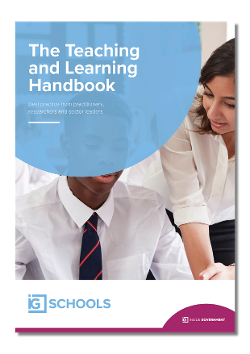Relationships Education in Primary Schools: One Last Chance to Get It Right
With exactly one year left to go until relationships education in primary schools becomes a mandatory part of the curriculum, the onus is on primary schools to guarantee the development of an age-appropriate and inclusive curriculum by September 2020.
Relationships Education Primary Schools: Understanding the Curriculum
Although the recently published Statutory Guidance does not provide specific information on the content of the curriculum, schools will be expected to cover topics such as friendships, family, boundaries, privacy, bullying, stereotypes and online relationships.
Teaching Relationships Education however, should be more than just the above. The purpose of this is to teach pupils to respect one another despite differences, to have healthy relationships and to tackle all sorts of bullying, including homophobic, biphobic and transphobic (HBT) bullying. On this note, schools will now have a duty to ensure inclusivity and teach LGBTQ+ inclusive relationships, making this a very welcomed change to the curriculum.
It is also important to remember that transgender pupils are still at great risk of self-harm and/or suicide as a result of bullying in schools, therefore highlighting the need for more support in schools – which can be achieved with the new curriculum.
A Focus on Sex Education
Following the publication of the Statutory Guidance, many prominent voices including Lucy Emmerson, Director of Sex Education Forum, have spoken out about the failure to make Sex Education mandatory for primary schools.
In today’s era, where children are exposed to many aspects of life with a sexual nature from a very young age, it is crucial to teach them how to be safe online and offline, how to recognise and give consent, and more importantly to remain safe from sexual abuse, including peer-on-peer assault and outside of school.
As educators, teachers have a responsibility to teach pupils enough to safeguard them. Thus, incorporating an age-appropriate and inclusive Sex Education to the Relationships Education curriculum is highly encouraged and will be taking one further step to ensure children have a safe future.
Are Teachers Prepared?
A recent poll conducted by the NSCPCC has uncovered that, out of 2000+ teachers, almost half of them (47%) lack the confidence in their own ability to deliver the new curriculum. This figure is extremely worrying, considering they have one year left to gain this confidence.
Teachers are encouraged to pursue training and seek advice if needed, and schools should prioritise training expenses in their budget. It is of utmost necessity for teacher to be able to respond to difficult questions and to deliver sensitive and age-appropriate Relationships and Sex Education, as ultimately, this contributes to child safeguarding policies and responsibilities.
What About the Parents?
Recent protests and parental concerns have added a layer of complication to the delivery of Relationships (and Sex) Education. Some have faith-based concerns, other believe their children are too young to learn about sex and sexuality.
Nevertheless, withdrawals from lessons can be detrimental to the child if they do not receive the same level of education as others, and therefore schools are encouraged to build healthy and supportive partnerships with parents. Parents should be consulted in developing the curriculum; however, they should not dictate or veto the content agreed upon.
Addressing parental concerns and involving them in the process will be crucial to the development of an excellent curriculum and will avoid the spread of misinformation. If parents are well informed by the school, negative ‘fake-news’ campaigns on RSE are less likely to have the desired impact, like the recent leaflet campaign in London.
Why Relationships Education in Primary Schools Matters
Though primary schools are encouraged to implement the new curriculum by September 2019, most will still need a year until they are required to do so and will be inspected on the delivery and aims of the curriculum.
But ultimately, the new guidance is about the wellbeing of our children, and in the words of Damian Hinds, Former Education Secretary:
“At the heart of preparing children for life in modern Britain is making sure that they understand the world they are growing up in. This is a significant step that will help young people to look after themselves and each other.”
Primary schools have one last chance now to implement an innovative Relationships and Sex Education that will influence the future of children. One might argue that one year is not enough time, and therefore every ounce of effort should be put in developing a contemporary and innovative curriculum.
This article was written by Noreen Kassam
Read more about curriculum delivery in the Schools Teaching and Learning Handbook.




